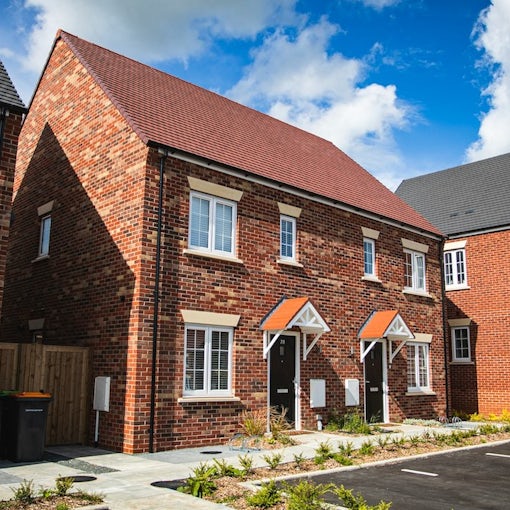Are you curious about why property values keep going up? We’ve got the answers for you! In our latest article, we delve into the mechanics of property pricing and explain how various factors drive prices higher.
From the impact of borrowing costs to the relationship between supply and demand, we cover it all. We also discuss the influence of positive sentiment and the ever-rising tide of inflation.
Understanding these dynamics is crucial for making informed decisions in the real estate market. Whether you’re a seasoned investor or just starting, this article will provide valuable insights to help you navigate the fluctuations and capitalise on long-term growth.
Don’t miss out on this opportunity to expand your knowledge and gain an edge in the property market.
At Belvoir, we understand how property investment can sometimes seem like a daunting endeavour. To help you navigate this journey, we’ve identified seven key yet often overlooked reasons explaining why land and property values consistently increase over time.
1. Demand and Supply
The basic economic principle of supply and demand plays a significant role. As the population grows, the demand for housing increases, often outweighing supply and driving prices up. Furthermore, factors such as urbanisation and attractive locations contribute to this imbalance. Urban areas with high job opportunities, good infrastructure, and lifestyle amenities see a surge in demand, leading to a rise in property values. Similarly, properties in scenic locales or with unique features also command a premium due to their limited supply.
The UK’s population has been consistently on the rise, further intensifying the demand for housing. According to the Office for National Statistics, the UK population is projected to reach almost 70 million by mid-2030. This sustained growth indicates an increasing need for residential property, which is likely to drive up real estate values.
2. Cost of Borrowing
The cost of borrowing, primarily determined by interest rates, is a crucial factor influencing property values in the UK. When interest rates are low, mortgages and loans become more affordable, resulting in a higher demand for properties. This increased demand pushes property prices up. Conversely, when interest rates rise, the total cost of buying a property increases due to higher mortgage repayments.
This often decreases demand for property, potentially leading to a drop in values. Therefore, the Bank of England’s decisions on interest rates significantly impact the dynamics of the property market.
3. Location Development
The progress and development in a specific area can significantly boost property values. This includes infrastructure improvements, establishment of new businesses, increased employment opportunities, new transportation links, better security measures, and upgrades to public facilities like parks and schools. Moreover, the establishment of new businesses not only offers increased employment opportunities but also attracts a workforce populace, creating a vibrant community, which further raises the desirability and value of properties in the area.
4. Inflation
Escalating property values typically correlate with the increase in the price of goods and services – inflation. However, an analysis of property prices, adjusted for inflation, reveals a modest annual growth of 1.1% above the inflation rate over the past 150 years. Although an outright purchase of property with cash may not seem thrilling, taking out a mortgage can prove to be a lucrative investment. As inflation affects the cost of the property, the rent and salaries, it creates an attractive environment for investment.
5. Land Scarcity
Land is a finite resource. In areas where land availability is limited, prices are likely to increase due to the inherent scarcity. This scarcity principle becomes even more prominent in bustling urban areas, where the demand for land often outstrips supply, leading to increased land values. The concept of land scarcity also extends to locations with unique features, such as waterfront properties or historical sites, where the uniqueness and desirability can further drive up property values.
6. Investor Confidence
A stable and growing economy in Lincolnshire boosts investor confidence. Investors, both domestic and international, are more likely to channel their funds into the local property market, driving up demand and consequently property values in the region.
Political stability, economic policies, infrastructure development, and market transparency all play crucial roles in shaping investor confidence. Stability in governance and robust legal frameworks provide assurance of property rights, while favourable fiscal and monetary policies foster economic growth and attract investment.
A robust economy and beneficial policies contribute substantially to investor confidence and the upward trajectory of property values in Lincolnshire.
7. Property Taxes
Property taxes, imposed by local governments, often take into consideration the value of the property. As such, in areas with higher property values, owners may incur more significant tax liabilities.
The impact of property taxes on real estate values is two-fold. On one hand, high taxes can deter buyers and investors from purchasing properties, leading to a decrease in demand and ultimately, property values. On the other hand, property taxes also fund local government services that make an area more attractive to potential buyers and investors, leading to increased demand and a positive impact on property values.
Typically, Stamp Duty Land Tax (SDLT) is payable on properties with a value of more than £250,000 in England.
In Lincolnshire, property tax rates are generally lower compared to major cities such as London, making it an appealing location for both homeowners and investors.
Summary
The dynamics of property investment present several potential advantages for investors. The principle of inflation can transform a mortgage into a lucrative investment and land scarcity, particularly in areas like Lincoln, can drive up property values, enhancing the potential for a strong return on investment. While property prices may fluctuate due to various influencing factors, long-term investors can typically expect a persistent rise in property values.
Embracing these principles can provide a more comprehensive understanding of property investment and guide investors on their path to financial success.
At Belvoir, we have the expertise to help you identify lucrative investment opportunities and navigate the complexities of the real estate market.
Predicting future movements in property prices is undeniably challenging due to the various factors at play. It is impossible to ascertain which factor will prevail at any given time. Consequently, property prices are bound to fluctuate, influenced in part by human emotion, leading to remarkable surges and crashes at times.
However, for long-term property investors, the persistent rise in property prices over the long run is supported by inflation and the inherent scarcity of land – even if there might be significant fluctuations over time.
As an Investor – How Can I Take Advantage?
We invite you to contact us for more insights into property investment opportunities. Our team of professionals is ready and eager to guide you through the intricacies of the real estate market, ensuring you make well-informed decisions that align with your investment goals.













